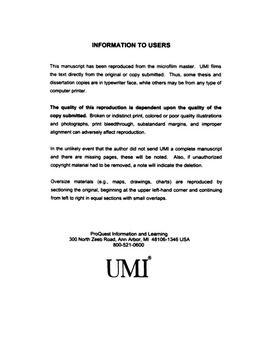| dc.contributor.advisor | Hassig, Ross, | en_US |
| dc.contributor.author | Yaworsky, William Raymond. | en_US |
| dc.date.accessioned | 2013-08-16T12:18:47Z | |
| dc.date.available | 2013-08-16T12:18:47Z | |
| dc.date.issued | 2002 | en_US |
| dc.identifier.uri | https://hdl.handle.net/11244/512 | |
| dc.description.abstract | A complex of intertwined economic subsidy programs and political patronage networks has long formed a pillar of social stability in rural Mexico. Recent economic reforms have reduced or eliminated key subsidy programs and this has compromised the effectiveness of traditional patronage networks, creating considerable economic and political uncertainty. A variety of nongovernmental organizations (NGOs) have appeared in the resulting vacuum, most with the stated purpose of promoting economic development initiatives or protecting human rights. This dissertation examines NGOs in the vicinity of Chilapa, Guerrero, and how they have come to perform key functions in a state directed project of economic restructuring. NGOs in highland Guerrero relate to rural communities chiefly as conduits for government projects. So while the increasing importance of NGOs in rural Mexico appears to signal a governmental retreat from the rural economy, it actually persists in this "independent" guise. | en_US |
| dc.format.extent | x, 312 leaves ; | en_US |
| dc.subject | Non-governmental organizations Mexico Guerrero (State) | en_US |
| dc.subject | Anthropology, Cultural. | en_US |
| dc.title | Nongovernmental organizations in the highlands of Guerrero, Mexico. | en_US |
| dc.type | Thesis | en_US |
| dc.thesis.degree | Ph.D. | en_US |
| dc.thesis.degreeDiscipline | Department of Anthropology | en_US |
| dc.note | Adviser: Ross Hassig. | en_US |
| dc.note | Source: Dissertation Abstracts International, Volume: 63-08, Section: A, page: 2921. | en_US |
| ou.identifier | (UMI)AAI3063955 | en_US |
| ou.group | College of Arts and Sciences::Department of Anthropology | |
